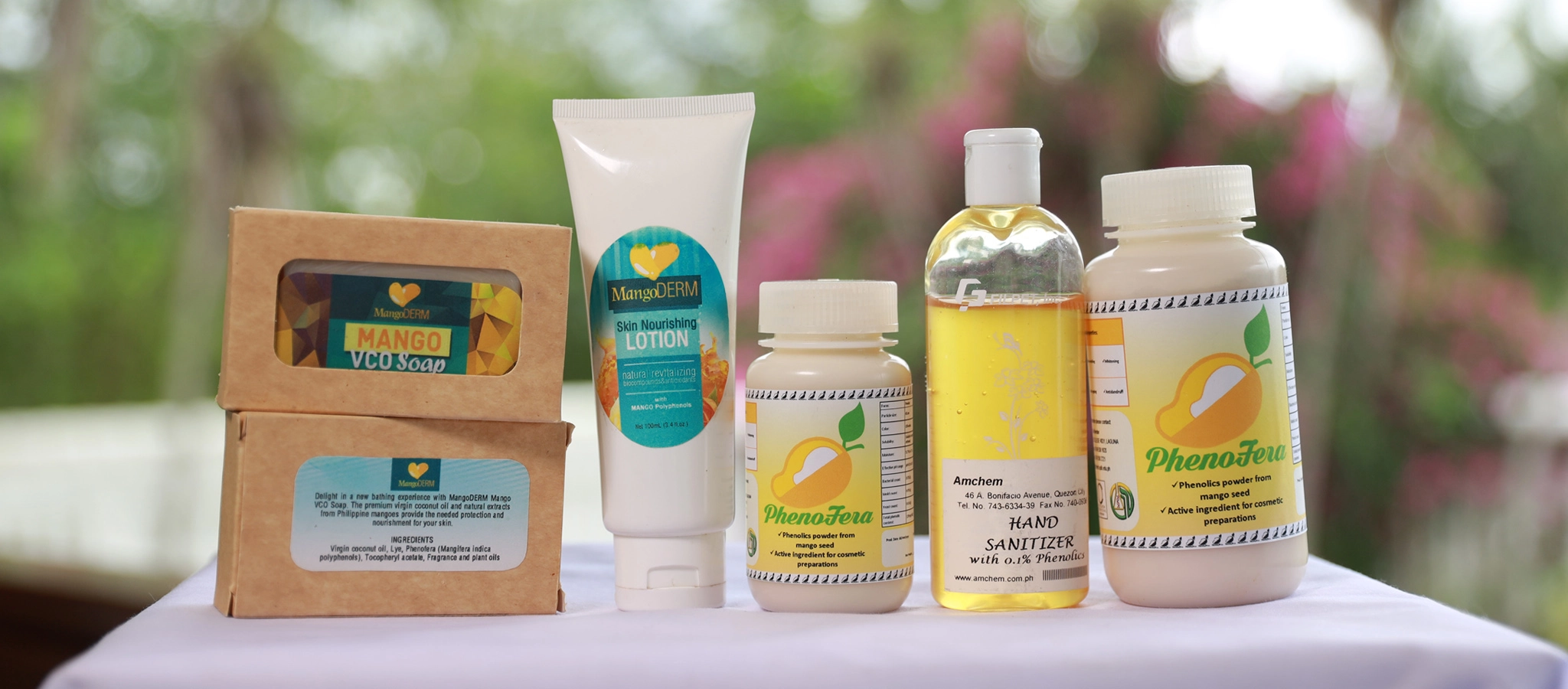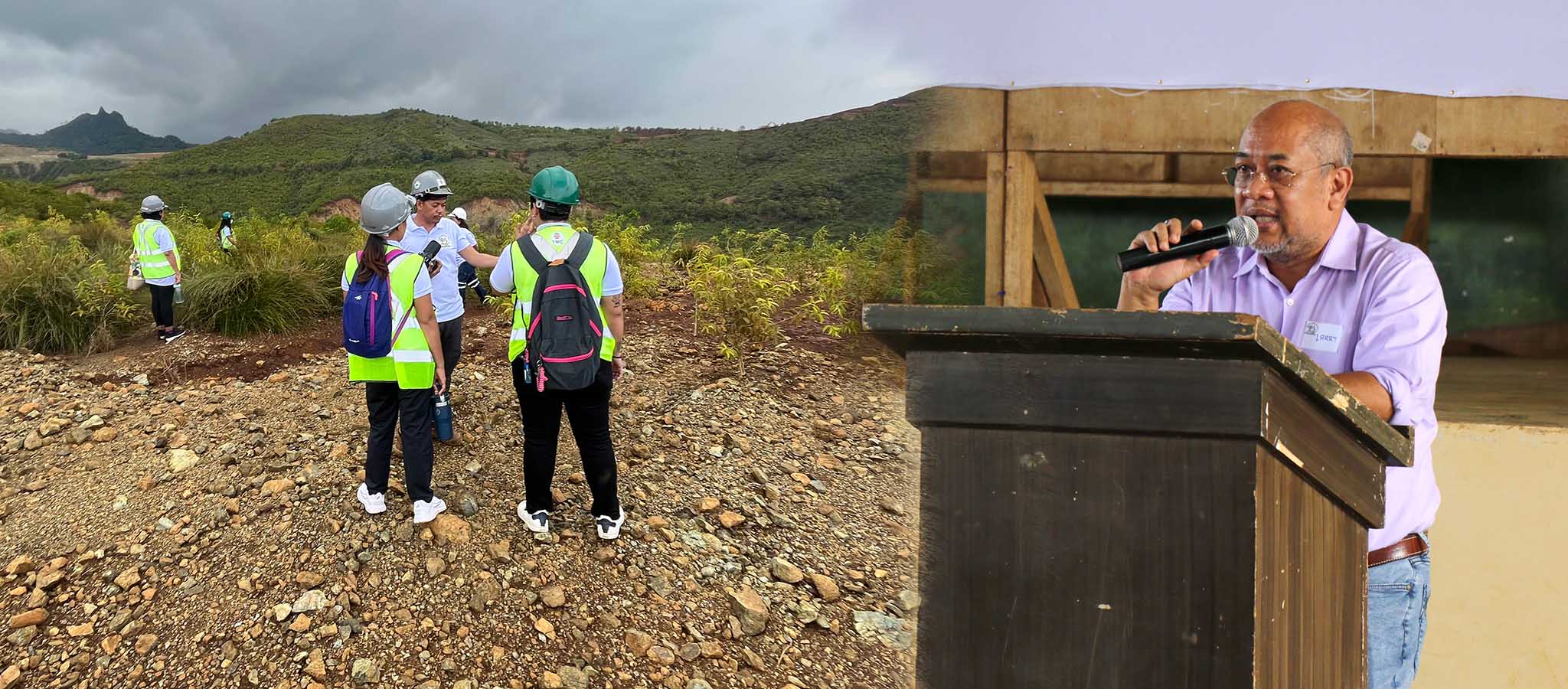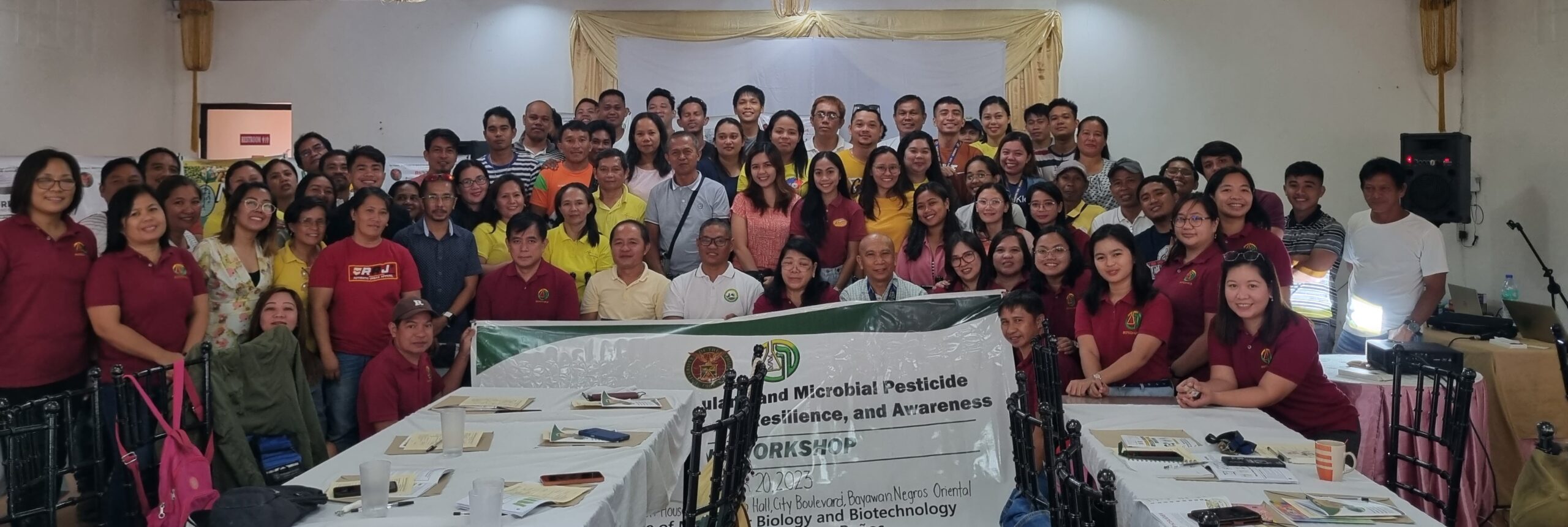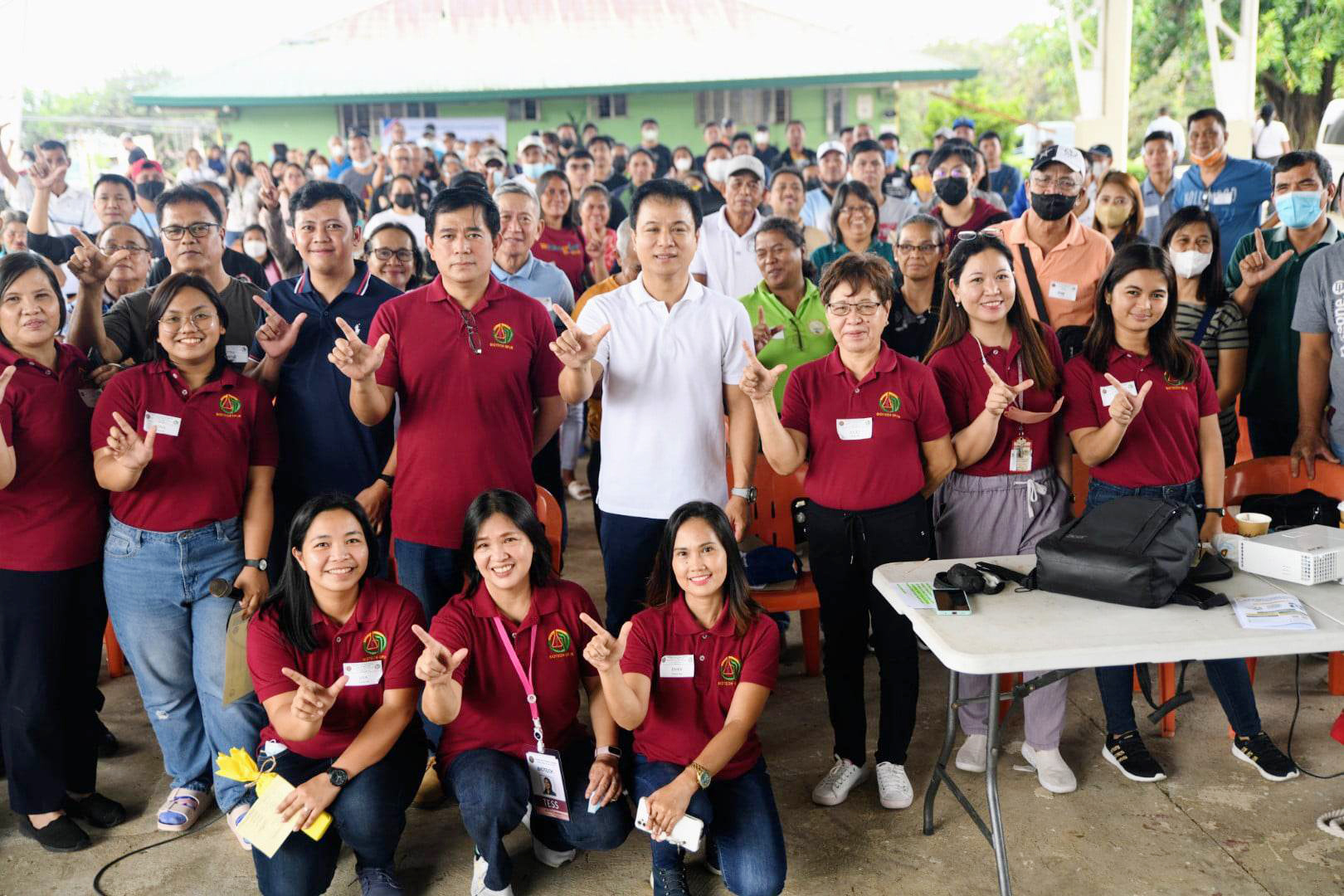
There is beauty from waste
The all-natural or organic content is getting a foothold in the beauty industry judging by their increasing visibility in advertisements.
We are not just talking about make up palettes, but also skin care products like lotions, hand sanitizers, liquid soaps, shampoo, and even sunscreens.
This is opportune for a product developed in UPLB to take center stage not only for its value as a natural ingredient but also because it is waste that would otherwise be disposed of.
Just like waste from mango seeds, tons of which are generated from mango processing.
Introducing PhenoFera, a natural antioxidant phenolics powder extracted from mango seeds.
“Phenofera” is a portmanteau of “pheno” from the word phenolics and “fera” from the word mangiferin, the dominant polyphenol in mangoes.
The antioxidant phenolics in PhenoFera is essential to the skin as it provides primary defense against photo-induced damage.
The idea of doing research on the use of mango waste was suggested by Dr. Rene Rafael Espino, then the head of the DA-BAR High Value Crops Development Program, who said that literature on mango waste in other countries were on polyphenols.
Arsenia Sapin, a researcher at the UPLB National Institute of Molecular Biology and Biotechnology (BIOTECH), partnered with another researcher at BIOTECH, Teresita J. Ramirez, to conduct the research.
Sapin worked on the polyphenols while Ramirez handled the development of dietary specialty flours from mango peel and seed.
Phenofera powder is used in cosmetic products and developed in prototype hair and skin care products such as sunscreen lotion, sun shield spray, moisturizer, shampoo, apricot scrub, hand sanitizer, and liquid hand soap.
It has hurdled effectiveness trials on 45 participants who used the PhenoFera-produced body soap, body lotion, and sunblock for 18 days.
It rivals other whitening ingredients in the market such as hydroquinone, corticosteroid, and kojic acid whose long-term use in high concentrations can have side effects including ochronosis, atrophy, carcinogenesis, and other systemic effects.
In January 2020, Sapin and Ramirez, with the help of BIOTECH researcher Fides Marciano Tambalo, presented Phenofera to the cosmetics industry through the Philippine Society for Cosmetic Science, Inc., which encourages the promotion, use, and development of natural products developed by Filipino researchers.
Phenofera is highly competitive, and currently, the team is in the process of looking into its large scale production.
It will also be subjected to safety tests as well as dermal allergenicity test.
PhenoFera is one product which shows that there are resources out there that will spur agro-industrialization if investments are made in the right places and the right people: in this case, on research and the creative minds of UPLB scientists.
A commercialized PhenoFera will benefit the mango industry in terms of providing additional source of income, generating employment, and putting waste to good use.
It will enable the cosmetics industry to use alternative and safe ingredients for the welfare of its customers. It will also help promote a sustainable future through the use of natural products.
PhenoFera is registered with the Intellectual Property Office of the Philippines with registration number 4/2018/00014763 dated January 17, 2019 (with reports from the UPLB National Institute of Molecular Biology and Biotechnology PhenoFera Terminal Report). (Kristine E. Araguas)
This article was originally published in UPLB Horizon with the URL https://horizon.uplb.edu.ph/horizon-magazine-2022/there-is-beauty-from-waste/?fbclid=IwAR1scexM3PNaawT3Zy8a-4RBd4H0lDKMXJOR4OJFNPxIyXlQFUuruiqpVFg
- YOU MAY ALSO LIKE



